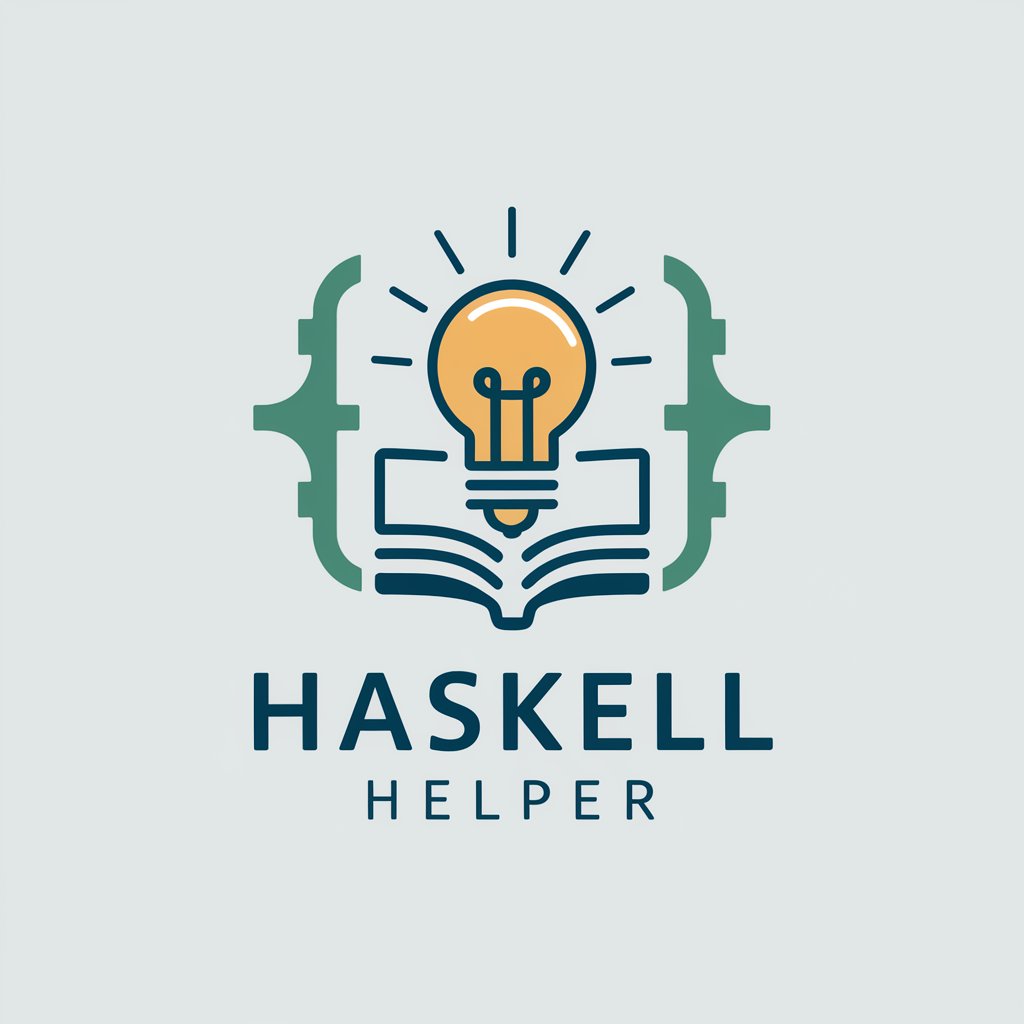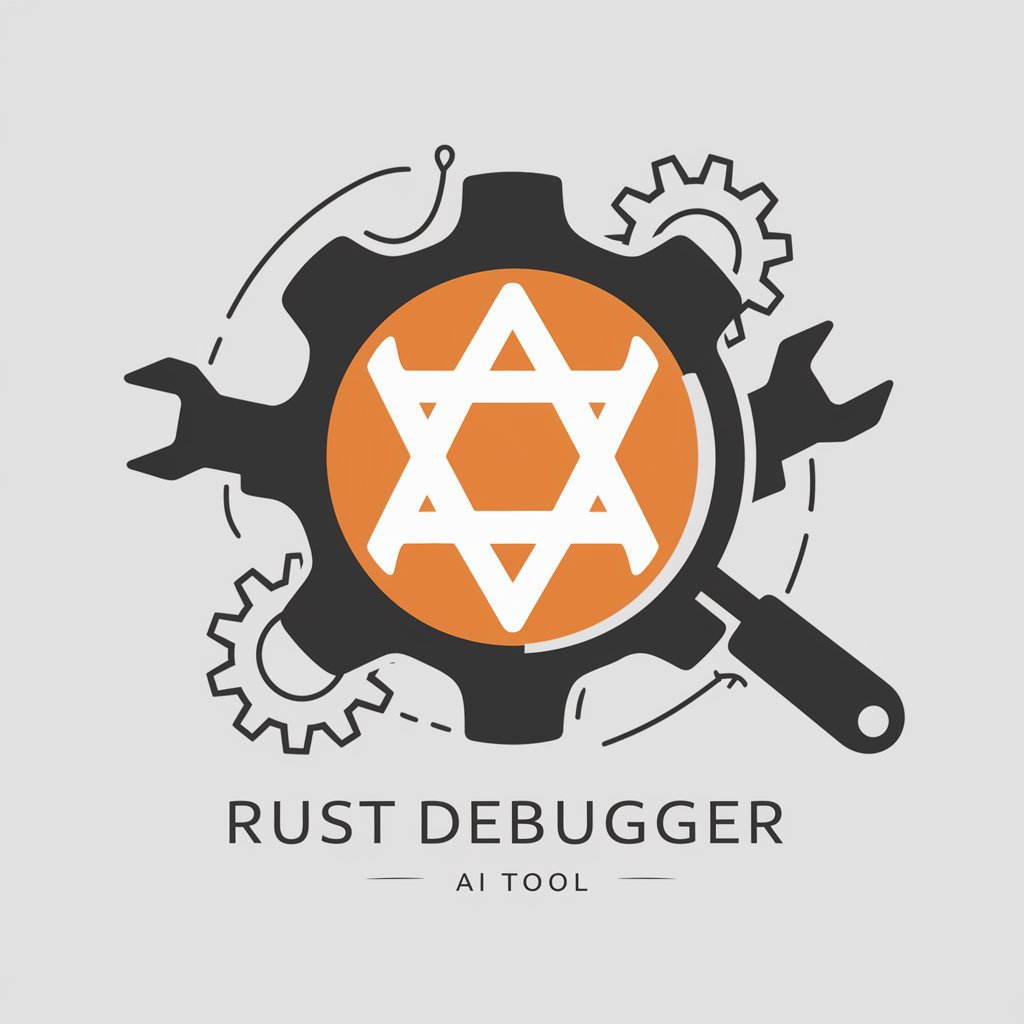Haskell Helper - Haskell Learning Aid

Hello! Let's explore Haskell programming together.
Empowering your Haskell journey with AI
Write a Haskell function that...
Explain the concept of monads in Haskell by...
Demonstrate how to use list comprehensions in Haskell to...
Compare and contrast lazy evaluation and strict evaluation in Haskell.
Get Embed Code
Introduction to Haskell Helper
Haskell Helper is a specialized chatbot designed as a tutoring and support tool for learners and practitioners of Haskell programming. Its primary design purpose is to guide users through the intricacies of Haskell coding, from basic syntax and concepts to more complex functional programming techniques. By adopting the role of a tutor, Haskell Helper provides model solutions, practical examples, and step-by-step guidance tailored to the user's learning pace. For example, when a user struggles with understanding monads, Haskell Helper can offer a detailed explanation followed by a series of practical examples that illustrate how monads can be used in different programming scenarios. Powered by ChatGPT-4o。

Main Functions of Haskell Helper
Code Explanation
Example
Explaining the use of 'foldl' and 'foldr' functions through examples.
Scenario
A user is confused about how these folding functions accumulate values in a list. Haskell Helper explains the difference, emphasizing 'foldl' for left-to-right accumulation with potential stack overflow issues and 'foldr' for right-to-left processing that’s better for infinite lists.
Error Debugging
Example
Guiding through the debugging of common type errors or logical errors in Haskell code.
Scenario
A student repeatedly encounters a 'type mismatch' error. Haskell Helper explains the Haskell type system and helps identify the mismatch, using the user’s code to show correct type annotations and where type inference might fail, thus clearing up common misconceptions and errors.
Best Practices
Example
Providing tips on immutable data structures and functional patterns.
Scenario
An experienced programmer new to Haskell is unfamiliar with immutable structures. Haskell Helper offers insights into why immutability is favored in Haskell and how it benefits concurrency and debugging, also suggesting common functional patterns like using maps and filters over lists.
Ideal Users of Haskell Helper
Computer Science Students
Students studying Haskell as part of their curriculum would find Haskell Helper invaluable for deepening their understanding of course material, completing assignments, and preparing for exams. Its interactive approach allows them to learn at their own pace, directly applying concepts in real-time coding.
Software Developers
Developers who are either new to Haskell or looking to refine their functional programming skills would benefit from Haskell Helper's capability to explain advanced concepts and its provision of idiomatic Haskell coding examples, facilitating a smoother transition to using Haskell in professional projects.
Academic Researchers
Researchers using Haskell for computational tasks, such as in data analysis or algorithm development, would appreciate Haskell Helper’s assistance in debugging complex algorithms and optimizing code for efficiency and correctness, particularly when traditional imperative solutions are less effective or desirable.

Guidelines for Using Haskell Helper
Start your journey
Head over to yeschat.ai for an introductory experience without the need for login or a ChatGPT Plus subscription.
Familiarize with Haskell basics
Before diving in, ensure you have a basic understanding of Haskell programming. This will make your interaction with Haskell Helper more fruitful.
Identify your needs
Consider what you're hoping to achieve - whether it's solving a specific problem, understanding concepts, or code optimization. This focus will guide your queries effectively.
Engage interactively
Don't hesitate to ask follow-up questions or request further explanations. Haskell Helper is designed to facilitate a learning-by-doing approach, adapting to your pace and style.
Experiment and learn
Apply the insights and solutions provided by Haskell Helper in your own projects. The real learning happens when you experiment with the code and concepts discussed.
Try other advanced and practical GPTs
SQL Wizard
Empower Your SQL with AI

Azure Architect
Optimize Azure with AI-powered insights

Rust Debugger
Elevate Your Code with AI-Powered Debugging

Data Insight
Unlocking Machine Learning Mysteries

EconGPT
Decoding Economic Data with AI

EconGPT
Decoding Economics with AI

Code only, no explanations
Instant code solutions, powered by AI.

SEO Consultant
Amplify Your SEO with AI

SEO Consultant
Empowering SEO Success with AI

SEO Consultant Pro
AI-driven SEO Optimization at Your Fingertips

Consultant SEO
Enhance your SEO with AI

SEO Prompting Consultant
Elevate Your SEO Game with AI

Frequently Asked Questions about Haskell Helper
What is Haskell Helper?
Haskell Helper is an AI-powered tool designed to assist learners and developers in understanding Haskell programming through interactive guidance and problem-solving.
Can Haskell Helper help with Haskell assignments?
Yes, it can assist in understanding assignment requirements, guiding through problem-solving steps, and explaining Haskell concepts crucial for completing your assignments.
How advanced are the Haskell concepts that Haskell Helper can explain?
Haskell Helper can cover a wide range of topics from basic syntax and functions to advanced concepts like monads, functors, and type systems, adapting to the user's level of expertise.
Is Haskell Helper suitable for beginners?
Absolutely. It's designed to accommodate learners at all levels, providing explanations and guidance that start from the very basics of Haskell programming.
How does Haskell Helper customize its responses?
By analyzing the user's queries and the context of their questions, Haskell Helper tailors its explanations and suggestions to fit the user's specific needs and understanding level.
